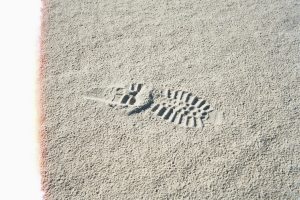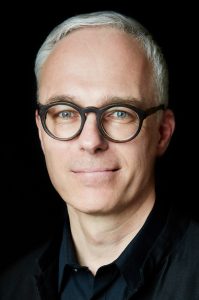Kerstin Hoppenhaus and Andreas von Bubnoff to be “Journalists in Residence” at HITS
The Heidelberg Institute for Theoretical Studies gives science journalists the opportunity to deepen their knowledge of computer-based, data-driven science with a longer stay at the institute. For the third time, the program was announced internationally. Candidates from six continents applied. The jury chose the science journalists Kerstin Hoppenhaus (Berlin, Germany) for 2018 and Andreas von Bubnoff (New York, USA) for 2019.
German science journalist Kerstin Hoppenhaus will be the seventh “Journalist in Residence” at the Heidelberg Institute for Theoretical Studies (HITS). For the third time, the program was announced internationally; candidates from six continents had applied, among them free journalists and editors as well. A jury consisting of science journalists and scientists from universities, Max Planck Institutes and HITS, selected Kerstin Hoppenhaus to be the “HITS Journalist in Residence 2018”. She will join the institute in July 2018.
Hoppenhaus studied Biology in Mainz, Tübingen and Jena (Germany), and in Lyon, France. After her Diploma Degree, she studied directing at the FilmBaden-Württemberg in Ludwigsburg, in the department economics and science. In parallel, she worked as a freelancer for several public TV stations in Germany.
Since 2005, she has been working as a freelance director for documentary films, research movies and online projects. Occasionally, she is writing articles for the weekly German newspaper “Die Zeit”. She is co-editor of an e-book about the role of online videos in science journalism and science communication.
Kerstin Hoppenhaus took a share in numerous projects that have been awarded with national and international prizes, e.g. the Grimme Award (Germany), the first prize at the Festival Epona at Cabourg, France, and several times the German Movie Award. For the development of a crossmedial online platform, she was awarded with the German Prize for Online Communication 2014. For a coverage project in Malawi, she received a grant from the European Journalism Centre in 2017, in the framework of the Innovative Development Reporting Grant Program.
Kerstin Hoppenhaus intends to use her stay to understand better the interplay of science and data and to develop new media formats suitable to grasp the complexity of the new data areas and to make them accessible also for laypeople.
The jury also chose New York City-based Dr. Andreas von Bubnoff as “Journalist in Residence” for 2019. The German-born free science journalist is a molecular biologist by training and has been living in the United States for 20 years. His work is published in many outlets like WIRED, The Atlantic, Nautilus, Quanta Magazine, Nature or Cell, but also for outlets in German-speaking countries (Frankfurter Allgemeine, Die Zeit, “RiffReporter”).
Since 2012, the “Journalist in Residence” program offers experienced journalists with a focus on science journalism the opportunity to spend a three-month to six-month paid stay at HITS. In this time, journalists can interact with the research groups, implement their own projects and participate in internal colloquia and seminars of HITS researchers.
Up to now, six journalists from India, the U.S., Spain and Germany spent a fellowship at HITS. All started with the award-winning German science journalist Volker Stollorz in 2012. In the meantime, Stollorz became chief editor of the German Science Media Center that has been founded in Cologne. The most recent journalist in residence at HITS was the India-based T.V. Padma, who came to the institute in 2017, starting her own data journalism project during her stay.
HITS is a private, non-profit basic research institute. It was founded by the Klaus Tschira Foundation in 2010. At HITS, currently around 120 scientists from 20 countries work in twelve research groups in areas where large amounts of data are produced and processed – from Molecular Biology to Astrophysics. One of the institute’s aims is to make the public more aware of the importance of computer-based, data-driven science, especially in natural sciences.
About HITS
HITS, the Heidelberg Institute for Theoretical Studies, was established in 2010 by physicist and SAP co-founder Klaus Tschira (1940-2015) and the Klaus Tschira Foundation as a private, non-profit research institute. HITS conducts basic research in the natural, mathematical, and computer sciences. Major research directions include complex simulations across scales, making sense of data, and enabling science via computational research. Application areas range from molecular biology to astrophysics. An essential characteristic of the Institute is interdisciplinarity, implemented in numerous cross-group and cross-disciplinary projects. The base funding of HITS is provided by the Klaus Tschira Foundation.

